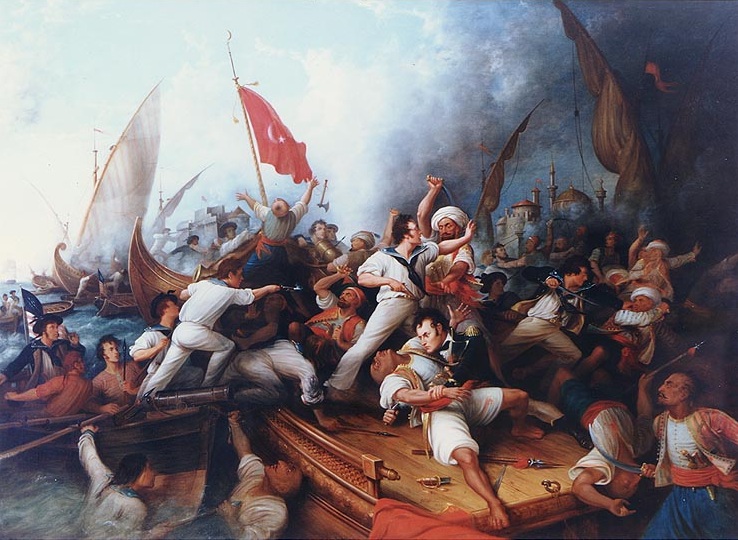August 3 in U.S. military history
1804: During the First Barbary War, Commodore Edward Preble’s Mediterranean Squadron begins his first bombardment of Tripoli Harbor. Commanding a division of ships is Stephen Decatur, the youngest sailor ever to be promoted to captain in U.S. Naval history. When Decatur’s brother is killed while boarding a Tripolitan gunboat, Decatur hands over command of his ship and, along with a small crew, boards the enemy vessel and engages the much-larger force in fierce hand-to-hand combat. When the captain responsible for his brother’s death attempts to behead Decatur, Daniel Fraser throws himself over Decatur, taking the lethal blow for his captain. Decatur shoots and kills the enemy captain and avenges his brother.
1914: As Germany declares war on France, Britain mobilizes their military. The Ottoman Empire declares armed neutrality (although they have secretly signed an alliance with Germany) and mobilizes their forces as well. Meanwhile, Belgium rejects Germany’s ultimatum to allow their troops to pass through on their way to invade France.
1943: As American, British, and Canadian troops drive across Sicily, Axis forces begin evacuating the island. While visiting soldiers awaiting evacuation at Nicosia, Gen. George S. Patton, commanding the Seventh Army, slaps a soldier suffering from battle fatigue and orders him back to the front lines. Gen. Dwight D. Eisenhower reprimands Patton for the incident and the legendary general will not command another combat force for 11 months.
1950: Eight F4U-4B Corsairs of Marine Fighter Squadron (VMF) 214 take off from the deck of USS Sicily (CVE-118) and attack enemy installations at Chengu, marking the first Marine aviation sortie of the Korean War. During World War II, the “Black Sheep” of VMF-214 destroyed hundreds of Japanese aircraft, sank several vessels, and earned the Presidential Unit Citation under Medal of Honor recipient and former “Flying Tiger” Maj. Greg “Pappy” Boyington – the Marine Corps’ top ace, with 28 aerial victories.
Congress initiates an involuntary recall of former enlisted soldiers, ordering 30,000 men to report for duty in September.
That same day in Southeast Asia, the first members of the U.S. Military Assistance Advisory Group members arrive in Saigon. The 35-man group will supervise the allocation of military aid to the French military in Vietnam, and later act as military trainers.
1958: USS Nautilus — the world’s first nuclear-powered submarine and the U.S. Navy’s sixth so-named vessel — becomes the first “ship” to cross the North Pole.
